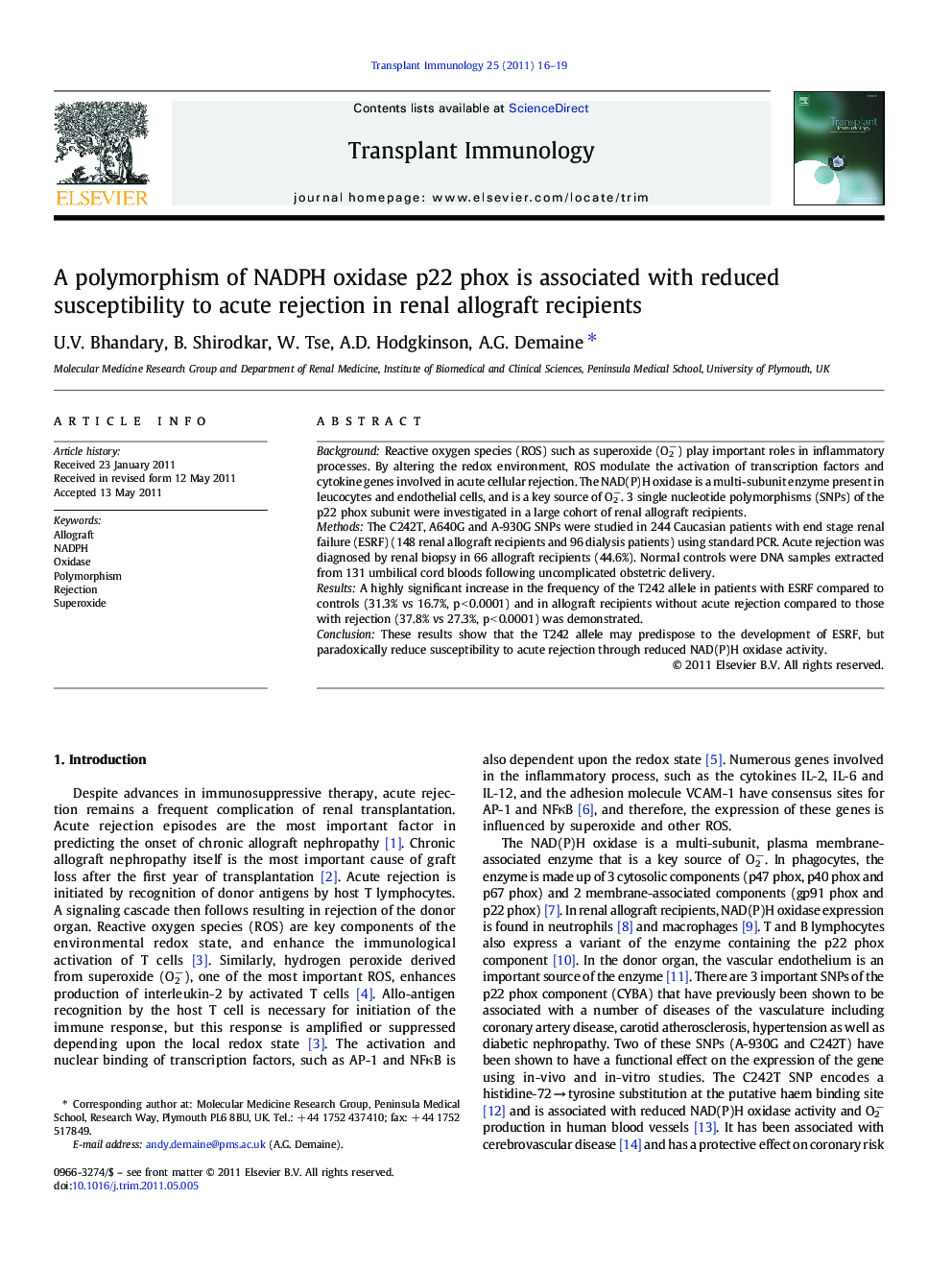| Article ID | Journal | Published Year | Pages | File Type |
|---|---|---|---|---|
| 3392185 | Transplant Immunology | 2011 | 4 Pages |
BackgroundReactive oxygen species (ROS) such as superoxide (O2−) play important roles in inflammatory processes. By altering the redox environment, ROS modulate the activation of transcription factors and cytokine genes involved in acute cellular rejection. The NAD(P)H oxidase is a multi-subunit enzyme present in leucocytes and endothelial cells, and is a key source of O2−. 3 single nucleotide polymorphisms (SNPs) of the p22 phox subunit were investigated in a large cohort of renal allograft recipients.MethodsThe C242T, A640G and A-930G SNPs were studied in 244 Caucasian patients with end stage renal failure (ESRF) (148 renal allograft recipients and 96 dialysis patients) using standard PCR. Acute rejection was diagnosed by renal biopsy in 66 allograft recipients (44.6%). Normal controls were DNA samples extracted from 131 umbilical cord bloods following uncomplicated obstetric delivery.ResultsA highly significant increase in the frequency of the T242 allele in patients with ESRF compared to controls (31.3% vs 16.7%, p < 0.0001) and in allograft recipients without acute rejection compared to those with rejection (37.8% vs 27.3%, p < 0.0001) was demonstrated.ConclusionThese results show that the T242 allele may predispose to the development of ESRF, but paradoxically reduce susceptibility to acute rejection through reduced NAD(P)H oxidase activity.
